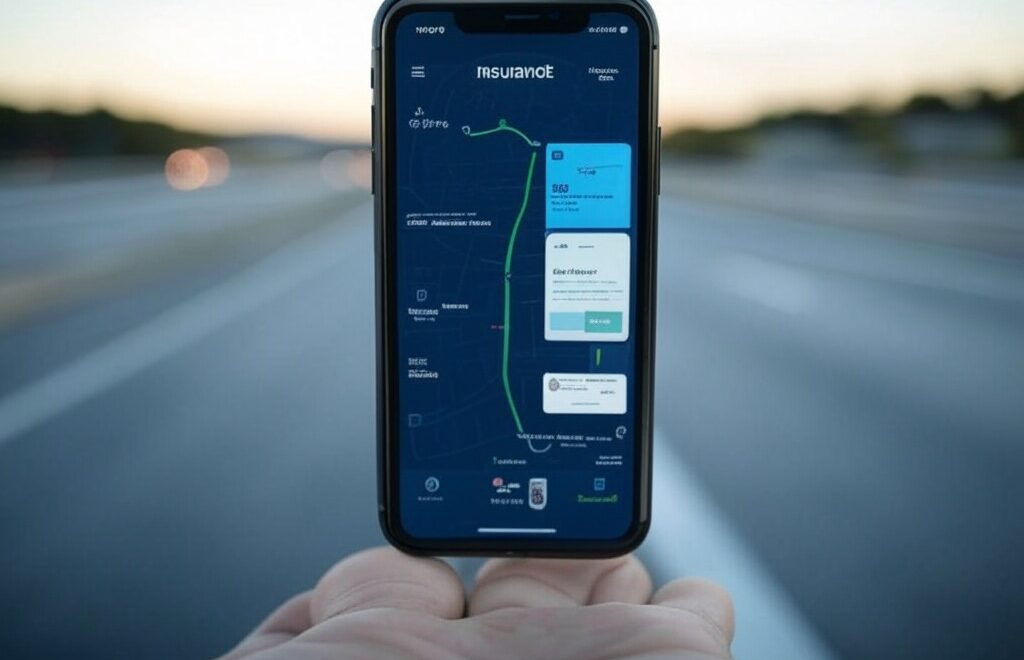
Insurance Company Mobile Apps That Track Driving: Are They a Good Idea?
In recent years, insurance companies have embraced mobile apps to monitor driving behavior, offering usage-based insurance (UBI) programs that promise discounts for safe driving. These apps use telematics to track metrics like speed, braking, acceleration, and phone use. Programs such as Allstate’s Drivewise, Progressive’s Snapshot, and American Family’s DriveMyWay are gaining popularity. But are these apps a good idea? This article dives into the benefits, risks, and broader implications of letting insurers track your driving habits.
The Promise of Usage-Based Insurance
UBI apps aim to personalize premiums by collecting real-time driving data. Unlike traditional insurance, which relies on factors like age or location, telematics rewards safe habits. For instance, Allstate’s Drivewise tracks braking, speed, and time of day, offering discounts up to 40% (Allstate, 2025). Similarly, American Family’s DriveMyWay monitors phone use and nighttime driving, with potential savings of up to 20% (American Family Insurance, 2025).
For cautious drivers, this can mean real savings. These apps also provide feedback, acting like a driving coach to improve habits, such as reducing sudden stops. Insurers claim UBI reduces accident rates and fraud, potentially stabilizing premiums industry-wide (Insurance Information Institute, 2024).
The Privacy Trade-Off
Privacy is a major concern. These apps require access to GPS, accelerometers, and sometimes background data, tracking your location and habits constantly. While insurers like Progressive state they don’t share data unless required (Progressive, 2025), vague terms leave room for doubt. Some apps, tied to Allstate-owned Arity, have faced scrutiny for collecting data via unrelated services like GasBuddy and selling driving scores (Consumer Reports, 2024).
Data security is another risk. A breach could expose your routines, and app data might be used in accident disputes, potentially misinterpreting defensive driving as reckless. A 2025 Texas lawsuit against Allstate alleged unauthorized data collection led to unfair premium hikes (Texas Department of Insurance, 2025).
Financial Risks and Unfair Assessments
While discounts are appealing, outcomes vary. Safe drivers may save, but others could face rate hikes for minor infractions like occasional speeding. In regions like Ontario, insurers can now raise premiums based on telematics (Financial Services Regulatory Authority of Ontario, 2025). Algorithms lack transparency, and urban drivers may be penalized for frequent stops, while rural drivers skate by.
Apps can also misinterpret data, flagging passenger trips or cycling as driving. Without context—like another driver’s recklessness—scores may unfairly reflect risk, frustrating users who see little reward for their efforts.
The Broader Impact
UBI could make insurance fairer by focusing on behavior over demographics. A 2018 survey found 74% of Canadians were open to tracking for personalized rates (Canadian Automobile Association, 2018). However, low-income drivers, who may work odd hours or navigate congested areas, could be disproportionately flagged, raising equity concerns.
Psychologically, constant monitoring can feel intrusive, turning driving into a test. Some users report stress from gaming the system, only to see minimal savings. One driver abandoned their app after it flagged “dangerous” turns on a winding road (Reddit, 2024).
Are They a Good Idea?
It depends. Confident, low-mileage drivers comfortable with data sharing might benefit from programs like Nationwide’s SmartRide or Geico’s DriveEasy, with discounts up to 50% (Nationwide, 2025). But if privacy matters more, or you drive in tough conditions, the risks—rate hikes, data misuse, or unfair claims—may outweigh savings.
Before enrolling:
- Read the Terms: Know what data is collected and if you can opt out penalty-free.
- Test First: Try apps like Allstate’s TESTDrivewise to check your score.
- Explore Alternatives: Look for discounts based on credit or history instead.
- Limit Access: Disable unnecessary permissions to reduce data collection.
The Road Ahead
Regulations are evolving. States like California are tightening data transparency rules, and a federal privacy bill is under review (U.S. Congress, 2025). For now, drivers must weigh the trade-offs. UBI apps offer savings and safer roads but come with risks. Choose wisely—your data and wallet are at stake.
